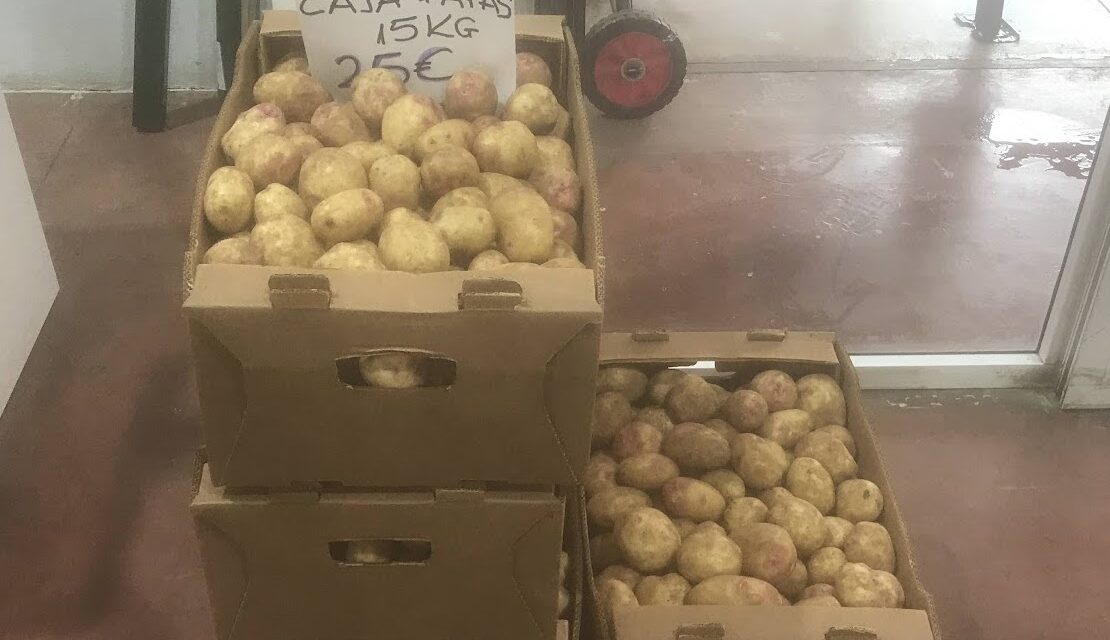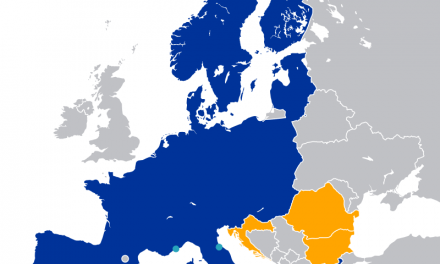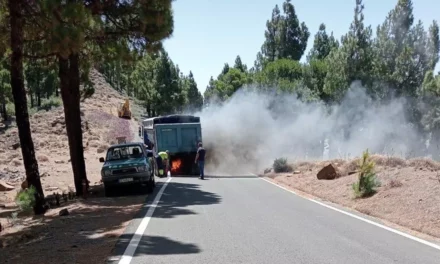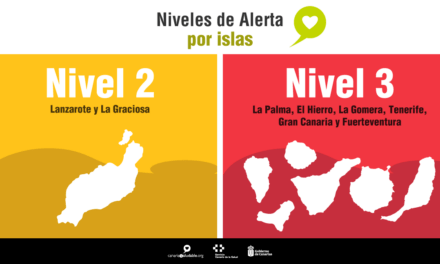Gran Canaria Island President, Antonio Morales, has made clear this Tuesday that there is no potato shortage on the island. He believes that the rising prices, in some places up 60% in just the last week, are simply due to what he has called a “made-up controversy” and an unnecessary panic. He has insisted that there is no real problem with the potato supply.
In response to the Canarian Association of Importers announcing a lawsuit, Morales points out that “lawsuits aren’t announced; they’re filed.” He has expressed his full support for Miguel Hidalgo, the island’s Councillor for the Primary Sector and Food Sovereignty.
Morales emphasised that the Association of Importers represents only a minority of importers, not all of them, and they don’t all share the same opinion.
 In reality, according to Morales, there has been no potato supply issue on Gran Canaria, and there still isn’t. He believes that some importers are trying to use the situation to force entry of containers of potatoes from England, which have currently been blocked due to the Colorado beetle plague. To achieve this, they are spreading the erroneous message that there is a potato shortage on the island, creating unnecessary panic among the public, leading to immediate price increases. This in turn has led to stories of restaurants removing staples, such as Ensalada Rusa or Papas Arugadas, from their menus.
In reality, according to Morales, there has been no potato supply issue on Gran Canaria, and there still isn’t. He believes that some importers are trying to use the situation to force entry of containers of potatoes from England, which have currently been blocked due to the Colorado beetle plague. To achieve this, they are spreading the erroneous message that there is a potato shortage on the island, creating unnecessary panic among the public, leading to immediate price increases. This in turn has led to stories of restaurants removing staples, such as Ensalada Rusa or Papas Arugadas, from their menus.
A “made-up controversy”
Morales called this situation a “made-up controversy” because there are many importers who continue to bring their potatoes from other places, as they always have. Some stores are selling potatoes for two euros per kilogram because they import them from Egypt or Israel and don’t face any supply issues. This also applies to other places that supply the island when our own local and regional cultivation is out of season.
 The problem at the centre of all this originated in England, where warnings were issued in July, but there has been certainly no sign of it in places like Scotland or Ireland. President Morales has suggested working with the Ministry to allow potato imports from these regions, which have not been affected by the red Colorado beetle.
The problem at the centre of all this originated in England, where warnings were issued in July, but there has been certainly no sign of it in places like Scotland or Ireland. President Morales has suggested working with the Ministry to allow potato imports from these regions, which have not been affected by the red Colorado beetle.
He also stressed that the Gran Canaria Cabildo will not support the elimination of phytosanitary controls on imports from England, as it could be detrimental to local potato farming and agriculture. These controls are essential to prevent the spread of pests in local crops and produce.
Morales proudly emphasised that local potato production has significantly increased, accounting for around 60% of what’s consumed on the island, a substantial amount, and inline with his longstanding policies on the promotion of agricultural and food sovereignty on the island.
As for Narvay Quintero, the Agriculture Minister for the Canary Islands, he has acknowledged that there is some decrease in potatoes for the islands compared to previous years but denies any actual shortage. Quintero has stated that they are working closely with the Ministry to have the UK certify that their potatoes are free from the beetle plague. This certification could open the door to importing potatoes from other UK regions like Wales, Northern Ireland, or Scotland.
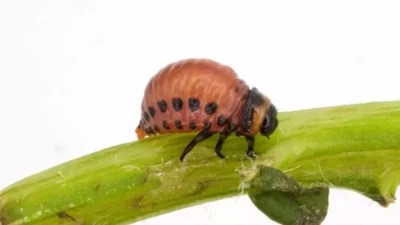
Colorado beetle larvae is reddish-brown in colour, round and up to about half an inch (15mm) in length
UK Chief Plant Health Officer Nicola Spence told the BBC, following sightings in Hampshire, that there was “no evidence” of any link to the Kent outbreak, which is the first in the UK since 1977.
“Whilst this pest does not pose a threat to human health, we encourage all growers, farmers, processors and the public to remain vigilant and report any sightings,” she added.
The beetle is bright yellow or orange with black stripes and is usually between 8.5 (0.3in) to 11.5mm (0.45in) in length and 3mm (0.1in) in width.
Its larvae is reddish-brown in colour, round and globular, and up to 15mm (0.6n) in length.
Although harmful to plants, they are not a threat to human or animal health and can be imported from continental Europe as “hitchhikers” on non-host plants, such as leafy vegetables and salad.

